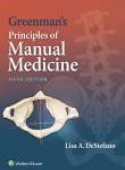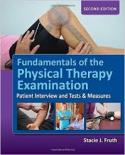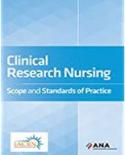Labor Day Holiday Hours The Library will be CLOSED to the public on Monday, September 4th. 24-hour card access will be available during this time to those with Duke Health Badges Only. Regular hours will resume on Tuesday, September 5th. |
Welcome to the Medical Center Library & Archives!

Megan von Isenburg, Associate Dean for Library Services & Archives
New academic years are an exciting time at the Medical Center Library & Archives! Our new trainees, students, and faculty bring enthusiasm, ideas, and questions... And as librarians, we love questions!
As I write this, I am sitting in the Searle Center Great Hall where almost 200 new fellows and residents are participating in a daylong orientation to their new roles at Duke. This group of trainees will be caring for patients and conducting research, and their questions reflect the variety of information needs they will have during their work. In August, we look forward to welcoming hundreds of new students who will begin their studies in biomedical graduate programs and who will have their own questions. I am happy to share with all our new and returning Duke Health faculty, staff, and students some of the most fruitful ways our Library can improve patient care, education, and research.
So what do new and returning Library users need to know?
- Our Website (http://mclibrary.duke.edu) – Whether you are on campus or off, start here with the portal to our resources and services. For almost all our resources, you do not need to be on the VPN or Virtual PIN… we will prompt you to sign in with your Duke NetID and password once you get to a licensed resource from off campus.
- UpToDate – Used by many clinicians, this popular resource is available on and off campus through our Website and a mobile app. To set up the app, visit www.uptodate.com on campus, then register for your own username and password. Download the app from your phone's app store, and sign in with your new UpToDate credentials. Note: these credentials are not needed for the Web version.
- PubMed – As tempting as it is, don't go to PubMed through Google or through your old institution! Always start at mclibrary.duke.edu and then click on PubMed from our Web page. This ensures that you'll see the journals Duke subscribes to and it facilitates access to PDFs both on campus and off.
- E-Books – We buy more electronic than print books so that information is more easily accessible when and where you need it! Electronic books also allow you to search quickly across books to find what you need. One of our popular e-book collections is ClinicalKey, but other titles are available as well. Our catalog includes records for all electronic books available at Duke.
- EndNote – Duke's Office for Information Technology offers a site license to EndNote. The Medical Center Library & Archives offers extensive support for this powerful tool, from online videos and classes to in-depth consultations to ensure that you spend time on your research, not formatting citations or locating PDFs.
- Evidence-based Medicine Tools – We offer DynaMed Plus, the Cochrane Library, JAMAevidence, and other tools to access, appraise, and apply the best evidence for clinical decision-making.
- Tools to help you get published – There are many ways to identify journals for your article manuscript, including JANE, Web of Science, and Scopus. Our librarians are happy to help you use these tools to identify potential homes for your research.
- Library Spaces – Our library stretches across three floors of the Seeley G. Mudd building and offers individual and small group study rooms, collaboration areas, data stations, quiet zones, and technology to facilitate your work.
- Our staff – Our library and archives staff are ready to help. Contact us to learn new tools, improve your searches, and connect with resources.
Reserve Our Study Spaces Online
The Medical Center Library & Archives now offers group study spaces for reservation by Duke-affiliated faculty, staff, and students.
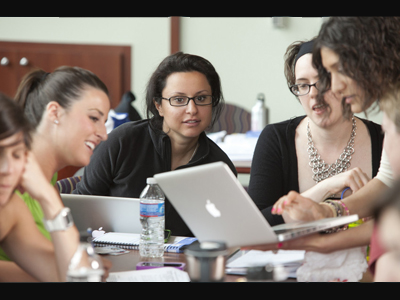 Group study rooms are available for booking on Levels 1 and 3 of the Library. All the rooms are equipped with large monitors and whiteboards and seat between 4 and 8 people.
Group study rooms are available for booking on Levels 1 and 3 of the Library. All the rooms are equipped with large monitors and whiteboards and seat between 4 and 8 people.
| Level 1: Rooms 102A and 102B Level 3: Rooms 315, 316, 319, 320 |  |
Reservation Policy: Group study rooms may be reserved by faculty, staff, and students for 2 hours per day, per individual. Rooms may be scheduled for up to 1 week in advance (including the day of the reservation). After a 15-minute grace period for arrival, the space becomes available to others.
Your Library Liaisons Are Here to Help
What are Library Liaisons?
To better serve Duke University and the Health System, librarians at the Medical Center Library & Archives have been assigned to work with specific departments or groups.
What can Library Liaisons do?
• Guest lecture in your class or journal club
• Integrate evidence-based practice and information literacy into your course or curriculum
• Collaborate on systematic reviews of the literature and grant preparation
• Consult on literature search strategies and resource selection
Who is my Library Liaison?
Emily Mazure, MSI
emily.mazure@duke.edu
919.660.1197
Brandi Tuttle, MSLIS
brandi.tuttle@duke.edu
919.660.1126

Megan von Isenburg, MSLS
megan.vonisenburg@duke.edu
919.660.1131
Beverly Murphy, MLS
beverly.murphy@duke.edu
919.660.1127
Leila Ledbetter, MLIS
leila.ledbetter@duke.edu
919.660.1128
FAQ: Getting Started at the Medical Center Library

1. How do I find out information about the Library?
If you want to know about us, check the About section of our site for hours, staff, directions, floor plans, blog, how to contact us, and more.
2. I need an electronic copy an article in the Journal of the National Cancer Institute. Where is that located on the Website?
Our e-journals page contains a searchable list of full-text biomedical electronic journals.
3. How do I get access to PubMed and other databases?
PubMed is accessible from the "Quicklinks" option on the main page. Connect to the Databases page for a full list of databases, descriptions, and any access restrictions. Below are a few examples of databases you have access to.
- MEDLINE (via PubMed or Ovid): references to biomedical and nursing journals
- CINAHL: references to articles in nursing and allied health
- ClinicalKey: medical and surgical resources
- Cochrane Library: evidence-based healthcare databases
- ExitCare: patient education materials
- Lexicomp and Micromedex: drug information
- PsycINFO: references to psychology and psychiatry articles and books
- UpToDate and DynaMed Plus: evidence-based point of care resources
- Web of Science: cited references to journal articles
4. Can I access resources from off-campus?
Yes, most of our resources are accessible through the EZProxy by signing in with your Duke NetID and password. For those which are not, remote access is available to Duke employees through http://portal.duke.edu/, the Duke University Web-based VPN. Visit our Web page for more information.
5. Are staff available for training? Can I request help with my research?
We’re here to help you improve your productivity, partner with you on your research project, guest lecture in your class, or help you online. We teach literature searching and information management to individuals and groups. Training can be requested online. We also provide videos and tipsheets for many of our most frequently used resources.
6. Is there a subject guide or tool set just for clinicians?
Yes, selected tools and various topic guides offer quick access to the Library’s electronic resources for clinicians, nurses, students, and other groups in the Duke community. The Clinical Tools Searcher interface allows you search across several evidence-based resources simultaneously.
7. I'm new to Duke and need to check what I have access to via the Libary.
Check here to find out which services are available to you as a Duke employee, patient, or special group within the Triangle area.
8. How do I contact a Librarian for reference and research assistance?
Get help from a librarian via Instant Messaging, text by cell phone, email, phone, or in person. In-depth consultations and search services available. Use our online request form or contact the Library Service Desk at 919.660.1100 to set up an appointment.
9. Are there computers in the Library that I have access to?
The Library provides computers and other equipment to support your research, educational and Duke-related work activities. Check here for Information about computers, PIN workstations, scanners and photocopiers, ePrint, and large screen monitors.
10. How do I get article that the Library does not own?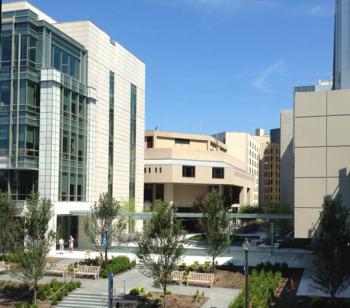
If you need to request articles or books or items not available at Duke, the Document Delivery/Interlibrary Loan service can help you.
11. I'm working on a project about the history of Duke Medicine and need some help. Who should I contact?
Medical Center Archives, located at 1408-A Christian Avenue, Durham, NC, has a number of online resources about Duke Health’s history, as well as images, exhibits, and ways to contact the staff for more information.
12. How do I keep up with what's going on in the Library?
Stay current on Library events, classes, new resources, and more, via our blog (RSS feed available).
DUMC Archives Resource Round-up
Rebecca Williams, Archives Librarian for Research, Outreach, and Education
Duke University Medical Center (DUMC) Archives is committed to preserving, documenting, and making available for research the permanent records of Duke Health. While we always welcome visitors to our physical location, the Archives has a variety of online resources to help users learn about the collections and the Medical Center’s history.
MEDSpace – If you’re looking for historic images, our digital repository, MEDSpace, is an excellent place to start. MEDSpace contains nearly 700 photographs documenting the history of Duke Medicine. You can also find early publications, medical illustrations and artwork, and medical artifacts.
Digitized Yearbooks – Want to look up a faculty member, an old classmate, or maybe even yourself? Our entire collection of the Aesculapian, the Duke School of Medicine’s yearbook, has been digitized and made available online. Browse or search 34 volumes spanning more than 60 years of Duke history, from 1950 to 2013.
Digitized Intercom – The Intercom, Duke Medicine’s primary news publication from 1953 to 1986, featured information about campus events and construction, faculty and staff news, and articles on medical research and innovations at Duke. The first 25 years of this publication have been digitized, making more than 500 issues available online.
DUMC Archives Guide – Our subject guide provides a brief overview of the Archives, including information about our collections, how to find items, and suggested resources. We recommend it for anyone who is new to Medical Center Archives as an introduction to what we have and how we can help with your research or project.
DUMC Archives African Americans at Duke Medicine Guide – This guide aims to introduce researchers to materials documenting the history of African American faculty, students, and staff at Duke Medicine. Included are recommended oral histories, archival collections, photograph and AV items, publications, selected key dates and key figures, and links to suggested digital resources.
Digital Exhibits – The Archives has several digital exhibits about key figures and events in the history of the Medical Center. Some of the topics include the Duke Poison Control Center, Dr. Wilburt C. Davison’s correspondence with Sir William Osler, and women in medicine at Duke.
DUMC Archives Blog – Updated regularly, our blog is the place to go for Archives news, to see materials from our collections, and discover stories about the Medical Center’s history.
Finally, the Duke University Medical Center Archives Website has recently been updated and given a fresh new look! Check it out and let us know what you think.
Come Visit Our Medical Garden!

Please note: The date has changed from August 25 to September 15!
It's spring and the Medical Garden is in bloom! If you are not familiar with our garden, come visit our table at the Farmer's Market on September 15 from 11a-2p. You will have a chance to get some information, explore some common medicinal herbs and plants, and pick up a few samples. We hope to see you there!
Easy Access from Off Campus
 Need to get to journal content or other library resources from off campus? Simply start at our Website! You will be prompted to sign in with your Duke NetID and password once you get to a resource that requires authentication. No VPN or Virtual PIN is needed!
Need to get to journal content or other library resources from off campus? Simply start at our Website! You will be prompted to sign in with your Duke NetID and password once you get to a resource that requires authentication. No VPN or Virtual PIN is needed!
There are only a few resources that require the VPN – Micromedex, PIVOT, Duke FormWeb, Altmetric Explorer, and ExitCare Patient Education. If you need drug information from off campus, Lexicomp only requires your NetID and password. The Duke Medicine network and clinical systems, including the Duke Medicine VPN, use Multi-factor authentication (MFA). You will be asked to type a second password to access our resources. For more information, see the VPN and Multi-factor Authentication Video.
Be sure to use the Duke version of PubMed if you're off campus and need to get to full text. When you find an article you want to read, click on the Get it@Duke button, which will prompt you to sign in with your Duke NetID and password. Remember that Get it@Duke will only take you to the full text of what we subscribe to. If we do not subscribe to the content you are looking for, you will be able to use Get it@Duke to look for the journal in the catalog or to request the article through Document Delivery/Interlibrary Loan Services. The DUMCL Online button only works on campus or on the VPN.
When accessing UpToDate, start at our Website and click on UpToDate under the Quicklinks. You’ll be prompted to sign in with your Duke NetID and password.
If you have any trouble accessing our resources from off campus, please contact the Library at 919.660.1100, email medical-librarian@duke.edu, or use our chat box.
Staying Current
Brandi Tuttle, Research & Education Librarian
Journal articles, professional associations, CME, conferences, and Grand Rounds…how do you manage to keep up in an ever-changing profession? With only so much time, the Medical Center Library wants to help you work smarter not harder!
Check out our Current Awareness Guide which highlights resources such as:
- MyNCBI to get a journal’s table of contents or get the latest research on a topic sent to you when you choose.

- Browzine (available through Duke Libraries) to browse, read, and share journal articles.
- RSS to create one place to collect and organize your news and journal feeds.
And finally, don’t forget your medical librarians! Schedule a class or consultation to get the latest tips and tricks on a particular database or resource.
What have you found helpful? Drop us a line at medical-librarian@duke.edu and let us know!
Featured New E-Books
Barbara Dietsch, Electronic Resources & Acquisitions Manager, Collection Services
Here are a few of our newly-acquired e-books. Reviews are excerpted from Amazon.com.
Lisa A. DeStefano
Focusing on the “how” and “why” of manual medicine techniques, this popular guide provides the tools needed to improve patients’ neuromusculoskeletal system function. It covers the foundations of manual medicine as well as specific techniques for diagnosing and treating musculoskeletal pain and features more than 1,000 photographs that walk you step by step through each technique.
Stacie J. Fruth
This text provides physical therapy students and clinicians with a fundamental, step-by-step approach to the subjective and objective portions of the examination process for a broad spectrum of patients.
American Nurses Association
The Clinical Researcher Nurse (CRN) balances the needs of the participant and the requirements of research across settings. This resource focuses on the care of research participants and the protocols of clinical research and trials.
Donna Weiss, Felice Tilin, and Marlene J. Morgan
This resource describes possibilities and options, theories, exercises, rich references, and stimulating questions that will inspire both novices and experts to think differently about their roles and styles as leaders or members of a team.
Suggestions for purchases? Complete our online Recommend a Purchase form or contact Emma Cryer Heet. For a complete list of titles added to our print book collections within the last 3 months, check out the Library's newest print book additions or subscribe to our "New Books" feed.
Find Open Access Articles Through Unpaywall
Jamie Conklin, Research & Education Librarian
If you need an article not available via our e-journals or catalog, try Unpaywall for an open access version. First, install the Unpaywall browser extension for Chrome or Firefox. Then when viewing an article, click the green tab for open access that automatically appears on the right side of the browser when an open access version is available.
Unpaywall finds open access content through a variety of sources, including PubMed Central, the Directory of Open Access Journals (DOAJ), Google Scholar, and others. Note that the article found can be a pre-print, post-print, or publisher's version of the article. Unpaywall is provided by Impactstory and supported by the National Science Foundation and Alfred P. Sloan Foundation grants.
Duke faculty can make their articles findable through Unpaywall by depositing their work in DukeSpace via the Elements system when building their Scholars@Duke profile.
For more information, read Unpaywall's FAQs.
Employee Spotlight: Eugene Lofton

Barbara Dietsch, Electronic Resources & Acquisitions Manager, Collection Services
Eugene’s Bio
- Working at Duke University Medical Center Library & Archives since: 2001
- Education: BA in Business; IS in Information Technology; Novel CAN; Red Hat Linux Certificate; Microsoft MCSA
- Current position: Information Services
Q & A
1. Describe your current position & what you find most interesting about it.
As an Information Services Specialist, I work with a team that integrates computer systems and communication into the work environment of the Medical Library and Archives. By computer systems, I mean everything from desktops and laptops to servers that offer storage, Web access and related services. This includes peripheral devices such as printers and scanners and the ability to connect wireless devices. I love the pace of change in my profession. You can never grow bored; new ideas and devices are a constant.
2. Describe yourself in three words. Self-motivated team participant
3. What has been your biggest professional challenge?
My biggest professional challenge is a personal one. Technical work tends to be solo and reclusive. You must be intentional in expanding your experience in your work area through joining and participating in activities that keep you from forming an isolationist attitude.
4. What do you think is the most interesting issue in libraries & archives today?
As content is moved to digital formats and library space shrinks, the most interesting issue for the Lbrary and Archives is how to do the other aspects of our historical designation. A library and archival strength is not only in maintaining information and providing access, but also in developing processes where access is ported into different environments, for pleasure, study, or to enhance other disciplines, and always promote collaboration and opportunity.
5. Whom do you admire?
I admire people with opinions. So many only speak public narratives. I love to hear original thought and ideas.
6. What organizations are you involved in?
Durham CAN (Congregations, Associations and Neighborhoods), Political Action Committee of the Democratic Party (PAC), People’s Alliance, and various computer groups and associations.
7. Is there anything about you that others might be surprised to know? I am taking cooking classes.
8. What do you do for exercise? For relaxation?
I am a member of the local YMCA. I read, I walk, and I love to hike. I am learning how to take pictures of my adventures.
9. What are you most proud of? I became a granddad four months ago.
10. What is your favorite Website or blog? Newcreationumcdurham.org
Staff News
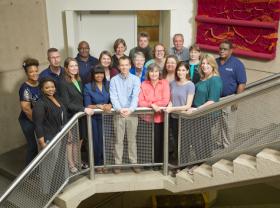
Jamie Conklin, Research & Education Librarian and Liaison to the School of Nursing, has coauthored the following two articles:
Jennie C. De Gagne, Sandra S. Yamane, Jamie L. Conklin, Jianhong Chang, Hee Sun Kang, "Social Media Use and Cybercivility Guidelines in US Nursing Schools: A Review of Websites," Journal of Professional Nursing, July 2017.
Jamie L. Conklin and Marilyn H. Oermann, "Publication Metrics," Nurse Author & Editor, 27(3):2, July 2017.
 | Congratulations to Michael Ravenel-Baker, Assistant Director of Information Technology & Digital Initiatives, who recently received a Duke University Career Service Award for five years of service. |
Improve Your Library Research Skills!
The Medical Center Library offers training on a variety of topics. Request a session for yourself or a group, schedule an appointment for a research consultation, or register for a class.
Publication Schedule & Staff
Duke University Medical Center Library & Archives News is published bimonthly.
| Megan von Isenburg, Associate Dean | Beverly Murphy, Editor |
| Editorial Board: | |
| Elizabeth Berney | Jamie Conklin |
| Barbara Dietsch | Rebecca Williams |
Subscribe to our newsletter and be notified when a new issue is published!








